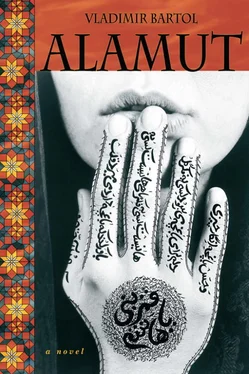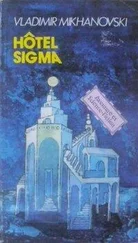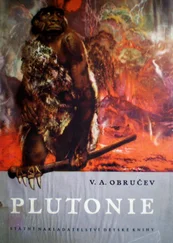Vladimir Bartol - Alamut
Здесь есть возможность читать онлайн «Vladimir Bartol - Alamut» весь текст электронной книги совершенно бесплатно (целиком полную версию без сокращений). В некоторых случаях можно слушать аудио, скачать через торрент в формате fb2 и присутствует краткое содержание. Город: Berkeley, Год выпуска: 2012, ISBN: 2012, Издательство: North Atlantic Books, Жанр: Историческая проза, на английском языке. Описание произведения, (предисловие) а так же отзывы посетителей доступны на портале библиотеки ЛибКат.
- Название:Alamut
- Автор:
- Издательство:North Atlantic Books
- Жанр:
- Год:2012
- Город:Berkeley
- ISBN:9781583946954
- Рейтинг книги:2.8 / 5. Голосов: 5
-
Избранное:Добавить в избранное
- Отзывы:
-
Ваша оценка:
- 60
- 1
- 2
- 3
- 4
- 5
Alamut: краткое содержание, описание и аннотация
Предлагаем к чтению аннотацию, описание, краткое содержание или предисловие (зависит от того, что написал сам автор книги «Alamut»). Если вы не нашли необходимую информацию о книге — напишите в комментариях, мы постараемся отыскать её.
Alamut — читать онлайн бесплатно полную книгу (весь текст) целиком
Ниже представлен текст книги, разбитый по страницам. Система сохранения места последней прочитанной страницы, позволяет с удобством читать онлайн бесплатно книгу «Alamut», без необходимости каждый раз заново искать на чём Вы остановились. Поставьте закладку, и сможете в любой момент перейти на страницу, на которой закончили чтение.
Интервал:
Закладка:
Vladimir Bartol
ALAMUT
NOTHING IS TRUE, EVERYTHING IS PERMITTED.
—The Supreme Ismaili MottoOMNIA IN NUMERO ET MENSURA

PUBLISHER’S NOTE
“The most blinkered reading of Alamut ,” writes translator Michael Biggins in his afterword to this edition, “might reinforce some stereotypical notions of the Middle East as the exclusive home of fanatics and unquestioning fundamentalists… But careful readers should come away from Alamut with something very different.”
In publishing this book, we aim to undermine hateful stereotypes, not reinforce them. What we celebrate in Alamut is the ways in which the author reveals how any ideology can be manipulated by a charismatic leader and morph individual beliefs into fanaticism. Alamut can be seen as an argument against systems of belief that eliminate one’s ability to act and think morally. The key conclusions of Hassan ibn Sabbah’s story are not that Islam or religion inherently predisposes one towards terrorism, but that any ideology, whether religious, nationalistic, or otherwise, can be exploited in dramatic and dangerous ways. Indeed, Alamut was written in response to the European political climate of 1938, as totalitarian forces gathered power over the continent.
We hope that the thoughts, beliefs, and motivations of these characters are not taken as a representation of Islam or as any sort of proof that Islam condones violence or suicide bombing. Doctrines presented in this book, including the supreme Ismaili motto of “Nothing is true, everything is permitted,” do not correspond to the beliefs of the majority of Muslims throughout the ages, but rather to a relatively small sect.
It is in this spirit we offer our edition of this book. We hope you’ll read and appreciate it as such.
CHAPTER ONE
In mid-spring of the year 1092 a good-sized caravan was wending its way along the old military trail that leads from Samarkand and Bukhara through northern Khorasan and then meanders through the foothills of the Elburz Mountains. It had left Bukhara as the snow started to melt, and had been underway for several weeks. The drivers brandished their whips, shouting hoarsely at the caravan’s draft animals, which were already on the verge of exhaustion. One after the other in a long procession stepped Arabian dromedaries, mules, and two-humped camels from Turkestan, submissively carrying their freight. An armed escort rode short, shaggy horses, glancing in equal measures of boredom and longing at the long chain of mountains that had begun to emerge on the horizon. They were tired of the slow ride and could barely wait to arrive at their destination. They drew closer and closer to the snow-covered cone of Mount Demavend, until it was blocked out by the foothills that absorbed the trail. Fresh mountain air started to blow, reviving the people and livestock by day. But the nights were ice cold, and both escorts and drivers stood around the campfires, grumbling and rubbing their hands.
Fastened between the two humps of one of the camels was a small shelter resembling a cage. From time to time a small hand drew the curtain aside from its window, and the face of a frightened little girl looked out. Her large eyes, red from crying, looked at the strangers surrounding her as if seeking an answer to the difficult question that had tormented her for the entire journey: where were they taking her, and what did they plan to do with her? But no one noticed aside from the caravan leader, a stern man of about fifty in a loose Arab cloak and an imposing white turban, who would blink in disapproval when he caught sight of her through the opening. At those moments she would quickly pull the curtain shut and retreat inside the cage. Ever since she had been bought from her master in Bukhara, she had been living in a combination of mortal fear and thrilling curiosity about the fate that was awaiting her.
One day, as they neared the end of their journey, a band of horsemen raced down the hillside to their right and blocked their path. The animals at the head of the caravan stopped on their own. The leader and escort reached for their heavy, curved sabers and assumed positions for a charge. A man on a short brown horse separated from the attackers and came close enough to the caravan that his voice was audible. He called out a password and received a response from the caravan leader. The two men galloped toward each other and exchanged courteous greetings, and then the new troop took over leadership. The caravan turned off the trail and headed into the brush, traveling this way until well into the night. Eventually they made camp on the floor of a small valley, from where they could hear the distant drumming of a mountain torrent. They built fires, ate hastily, and then fell asleep like the dead.
When dawn came they were back on their feet. The caravan leader approached the shelter, which the drivers had unfastened from the camel’s back the night before and set down on the ground. He pushed the curtain aside and called out in a gruff voice, “Halima!”
The frightened little face appeared at the window; then the low, narrow door opened. The leader’s firm hand grabbed the girl by her wrist and pulled her out of the shelter.
Halima’s whole body was shaking. Now I’m done for , she thought. The commander of the strangers who had joined the caravan the previous day held a black bandage in his hand. The caravan leader signaled to him, and the man wordlessly put the kerchief over the girl’s eyes and knotted it tightly at the back of her head. Then he mounted his horse, pulled the girl up into the saddle with him, and covered her in his vast cloak. He and the caravan leader exchanged a few words. Then he spurred his horse into a gallop. Halima shrank into a tiny ball and clung fearfully to the rider.
The sound of the torrent grew closer and closer. At one point they stopped and the rider briefly spoke to someone. Then he spurred his horse again. But soon he was riding more slowly and cautiously, and Halima thought that the path must be very narrow and lead right along the edge of the mountain stream. Cool air wafted up from below, and terror once again constricted her heart.
They stopped again. Halima heard shouting and clanking, and when they set off at a gallop again, there was a muffled rumbling beneath the horse’s hooves. They had crossed a bridge over the rapids.
What followed seemed like a terrible nightmare. She heard a tumult of shouting, as though an entire army of men were quarreling. The rider dismounted without letting her out of his cloak. He raced with her first over level ground, then down some steps, until it seemed to have grown very dark. Suddenly he threw his cloak open and Halima felt someone else’s hands take hold of her. She shuddered in near-mortal terror. The person who had taken her from the horseman laughed quietly. He headed off with her down a corridor. Suddenly a strange chill enveloped her, as though they had entered a cellar. She tried not to think at all but didn’t succeed. She was sure she was coming ever closer to the last and most horrible moment.
The man who was holding her began to feel along the wall with his free hand, which finally found some object and firmly pushed it. A gong reverberated loudly.
Halima cried out and tried to break free of the man’s arms. He only laughed and said, almost kindly, “Don’t wail, little peacock. Nobody is going to touch you.”
Iron chains jangled and Halima once again saw flickers of light through the blindfold. They’re throwing me in jail , she thought. The stream roared beneath her and she held her breath.
Читать дальшеИнтервал:
Закладка:
Похожие книги на «Alamut»
Представляем Вашему вниманию похожие книги на «Alamut» списком для выбора. Мы отобрали схожую по названию и смыслу литературу в надежде предоставить читателям больше вариантов отыскать новые, интересные, ещё непрочитанные произведения.
Обсуждение, отзывы о книге «Alamut» и просто собственные мнения читателей. Оставьте ваши комментарии, напишите, что Вы думаете о произведении, его смысле или главных героях. Укажите что конкретно понравилось, а что нет, и почему Вы так считаете.












